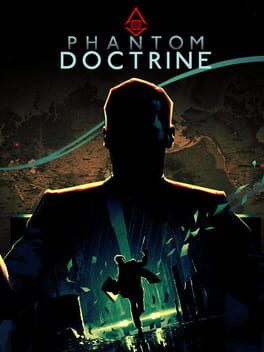
More than just stealth games, these espionage titles from the past decade are perfect for conspiracy lovers.
In recent years, spy movies and TV shows have dominated the screens, with major franchises like 007, Mission: Impossible, Kingsman, Jack Ryan, The Night Agent, Slow Horses, and Killing Eve growing in popularity. But for espionage fans in gaming, things haven’t felt quite as exciting. Several beloved franchises like Splinter Cell and Deus Ex have been put on hold with no clear future, the once-promising Perfect Dark revival has been canceled, and long-running icons like Metal Gear Solid seem to have reached their conclusions, with no direct successors on the horizon.
Still, the future isn’t looking bleak for gaming spy lovers. 2026 is shaping up to mark the return of Bond with the highly anticipated 007: First Light, Ubisoft continues work on the Splinter Cell Remake, the original Deus Ex is getting a remastered treatment, and Hideo Kojima is developing the mysterious espionage-focused Physint.
With all that in mind, the past decade hasn’t been entirely lacking in standout spy titles either. Developers explored a wide mix of tones and ideas, from serious AAA games with sprawling mission design and complex mechanics, to smaller, playful projects packed with personality. This list looks at some of the best spy games released in the last 10 years (no later than 2015).
While these titles may not fully belong among the best spy games of the past decade or may have too broad an appeal to be considered strictly espionage titles, they still deserve mentioning for fans seeking more thematic spy-focused experiences:
A charming distraction that feels more like an appetizer than a full course, Agent A: A Puzzle in Disguise still manages to leave a mark despite its very short length. It’s a great example of a spy game that appeals to all ages, with various puzzles and hidden secrets (over 150 in total) taking center stage throughout this infiltrating adventure. Stylish 1960s-inspired visuals, retro-futuristic aesthetics of the golden spy era, somewhat reminiscent of No One Lives Forever, and a playful tone help the experience feel fresh and memorable.
Playing as expert infiltrator Agent A, players rely on logic, memory, gadgets, and tools to explore a labyrinth-like hideout full of perplexing contraptions, featuring 35 unique environments to explore and solve. The creative puzzle design and overall clever structure make Agent A: A Puzzle in Disguise far more than a typical point-and-click adventure, and an unexpectedly fun way to spend a night.
Unlike this year’s Black Ops 7, last year’s Call of Duty: Black Ops 6 delivered one of the strongest campaigns the long-running FPS series has seen in the past decade — and this recommendation applies purely to its story mode (especially since its relatively low Steam user ratings reflect the full package). Instead of the array of full-force assault missions typically expected from a CoD game, Black Ops 6 leans into a more subtle, espionage-driven style, where players have to sabotage, take photos, investigate, and hack almost as often as draw their firearms.
Black Ops 6 mission highlights include in-depth planning and executing a casino heist to create a distraction, stealth infiltration and diversion-based operations, and sabotage missions with flexible, quest-like objectives such as persuading or blackmailing targets. Gathering intel through cameras and other spy tools reinforces the covert tone and makes each mission feel distinct. And for players who appreciate this fresh direction, the Black Ops Cold War campaign is another strong recommendation. It shares a similar time period, themes, characters, and overall espionage-heavy approach to its narrative and mission structure.
Deus Ex: Mankind Divided could easily rank higher among conspiracy-driven titles, if not for its abrupt and unsatisfying ending, which feels like it was meant to lead into a proper finale for Adam Jensen’s story. Despite notable improvements over Human Revolution in both gameplay and technical execution, Mankind Divided can’t escape the feeling of being a half-baked experience overall, abruptly wrapping up just as the narrative and tension finally gain momentum.
Still, with its refined stealth systems centered around infiltration rather than front-loaded action, beautifully layered levels, unmatched dystopian atmosphere, and a complex narrative where conspiracy and deception sit beneath every surface, Deus Ex: Mankind Divided remains essential for spy and espionage fans. Its lack of direct answers may even enhance the appeal for some players, offering ambiguous motives, unclear alliances, and powerful unseen forces quietly pulling every string.
A notable attempt to bring something fresh to the spy subgenre, Phantom Doctrine is a deep and complex blend of turn-based tactics and strategy, with a clear emphasis on stealth and espionage. Set at the peak of the Cold War in 1983 (a near-perfect backdrop for a spy game this serious), Phantom Doctrine uses the tension between East and West to great effect, aiming to capture the subtle intrigue of classic high-stakes spy movies and immerse players in a world of counterintelligence and covert operations.
Everything in Phantom Doctrine is designed to appeal to those who want a full-scale spy thriller: meticulously crafted maps across the globe, a lengthy campaign inspired by real historical events and government secrets explored from multiple perspectives, and a wide array of covert missions involving surveillance, infiltration, interrogation, and intelligence gathering. The tactical combat offers surprising depth and flexibility, rewarding careful planning over brute force. While not without its flaws, Phantom Doctrine is a potential hidden gem for modern XCOM fans. And for those who want to test their tactical genius, the game even includes a ruthless online multiplayer mode to pit your spycraft against other players.
Masters of stealth and survival, Klei Entertainment (known for Don’t Starve and Mark of the Ninja) delivered one of the best true spy games with Invisible, Inc. Packed with high-stakes missions and exceptional replayability, it constantly puts every agent’s life at risk, resulting in a mix of frustration and satisfaction that feels entirely earned. Serving almost as a deconstruction of the classic stealth genre, Invisible, Inc. features layers of deceivingly complex interactions fueled through teamwork, customization, and strategy, achieving palpable tension even within its turn-based structure.
Each playthrough feels distinct thanks to deep build customization across abilities, augments, items, and programs, along with smart use of random generation for environments, enemy layouts, threats, and rewards. As a result, Invisible, Inc. walks a fine line between unpredictability and strategic adaptation, pushing players to improvise while still rewarding planning. With five different game modes, the game can be brutally challenging, yet it is precisely what keeps players coming for more.
The entire Hitman trilogy easily ranks among the best stealth-action games ever made, with one foot firmly planted in conspiracy and espionage. Anything gun-related makes up only a tiny fraction of the World of Assassination formula; instead, players spend countless hours observing, gathering intel, sabotaging equipment, disguising themselves, chatting with NPCs, distracting guards, hiding bodies, learning patrol routes, and studying surveillance systems — all to execute their targets as efficiently and professionally as possible.
With a wide selection of beautifully distinct locations spread across the globe, each packed with sandbox opportunities and multiple creative paths to complete Agent 47’s objectives, the trilogy offers near-endless replayability. Add to that a rotating lineup of targets through the Elusive Target system, and Hitman: World of Assassination becomes a true playground for those who want to slip into the shadows of conspiracy and operate as the world’s most reliable tool. It’s no surprise that IO Interactive has been trusted with reinventing James Bond for gaming. After perfecting the craft with Hitman, the studio feels uniquely positioned to bring Ian Fleming’s iconic spy world to life on a scale fans have never seen before.
An epic and sprawling finale to the decades-long tactical espionage saga, Metal Gear Solid 5: The Phantom Pain (along with its prologue, Ground Zeroes) is an easy pick for the best spy game of the decade. The game only just qualifies given that it’s a late-2015 release, but nothing since has really matched it. Mechanically deep, narratively ambitious, intricately designed, and full of surprises, The Phantom Pain remains essential for open-world fans, stealth-action players, and espionage enthusiasts alike.
Featuring several large sandbox maps with unmatched freedom in how objectives can be approached, The Phantom Pain encourages experimentation over dozens of hours, constantly revealing new systems and possibilities. Its cinematic story, packed with tension, familiar faces, and shocking developments, constantly keeps both newcomers and long-time fans on their toes. The vast range of tactical possibilities, upgradeable gear, and unconventional tools and tactics places Metal Gear Solid 5 almost in a league of its own, not only outshining every previous entry in the franchise, but arguably surpassing nearly every spy-focused game available to date.
Bản xem trước mở rộng – Nội dung chưa đầy đủ.

Đang cập nhật mô tả.

Đang cập nhật mô tả.

Đang cập nhật mô tả.

Đang cập nhật mô tả.

Đang cập nhật mô tả.

Đang cập nhật mô tả.

Đang cập nhật mô tả.